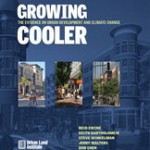D.C.’s Campaign for Mandatory Inclusionary Zoning is a broad coalition of traditional affordable housing allies along with progressive labor, religious and community-based groups. Over three years, the Campaign worked to achieve an inclusionary zoning policy which was adopted by the D.C. Zoning Commission (the body vested with land use authority in the District of Columbia). In December 2006, the D.C. City Council adopted the necessary legislation to implement the Zoning Commission’s polices, and appropriated money for staffing, but the new Mayor Fenty Administration has yet to issue draft regulations.


